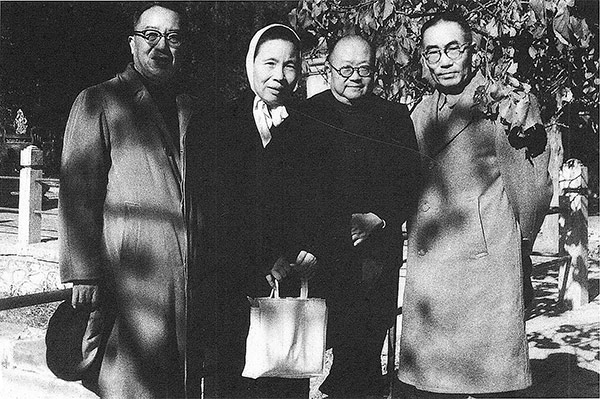

From material life, social institutions and organizations to culture and history, they provided a multidimensional understanding of villages and formed what Wu called an overall study. He expected to draw some general conclusions for the whole country based on detailed case studies, according to Zhou.
It was in such an academic environment that the most well-known Chinese sociologists, including Fei, Lin Yaohua (1910-2000), author of The Golden Wing: A Sociological Study of Chinese Familism, and C.K.Yang (1911-99), a former professor at the University of Pittsburgh in the United States and head of the sociology department at the Chinese University of Hong Kong, gained their initial training.
During the War of Resistance Against Japanese Aggression (1931-45), Yenching's sociologists managed to continue research and teaching in Southwest China's Yunnan province.
"I felt that a more crucial problem to be solved after the war is how we are going to build our country. It's my responsibility to prepare for it with my knowledge and what I should do is to form a scientific understanding about Chinese society," Fei wrote in the preface of Earthbound China, a field report of three villages in Yunnan looking at agriculture, handicraft industries and commerce that he researched during the war.
At that time he had received his doctorate degree from the London School of Economics and Political Science where he learned from Polish-British anthropologist Bronislaw Malinowski and made an arduous journey to return to his motherland. Fei's doctoral dissertation, published in English under the name Peasant Life in China and which made him known in the West, described consumption, production, distribution and trading in Kaixiangong village on the lower reaches of the Yangtze River, and how the economic system, geographical environment and social fabric of the community interplayed.
It was based on notes of his lectures given at the National Southwestern Associated University and Yunnan University in Kunming also during wartime that formed two of his most influential and renowned works, From the Soil: The Foundations of Chinese Society and Shengyu Zhidu (institutional system of reproduction). From the Soil summarizes and gives explanations of fundamental characteristics of Chinese society, its traditional culture and social structure, and how it differs from the West.
Major insights of this book include what Fei named chaxugeju (a differential mode of association), in which Chinese people are born into social relations resembling a series of concentric circles that are produced by one's own social influence. As each circle, with the self as its center, spreads out, the social relations become more distant and insignificant. This mode provides a powerful interpretation for Chinese guanxi (networking) traditions.
In 1952, Yenching was closed and part of it was merged with Peking University. Meanwhile, all sociology departments in Chinese universities were closed and sociologists repositioned, mainly turning to ethnological studies and socioeconomic investigations in rural China.
It was in 1979 that restoring sociology departments in Chinese universities were put on the agenda and Fei was a key figure in resuming research and teaching after being suspended, first by training po
tential teachers and young scholars. He and a group of peer scholars invited sociologists from home and abroad to lecture on Chinese sociology traditions and updated sociology theories and methods in the West while compiling corresponding textbooks.
The sociology department of Peking University was officially reestablished on April 9, 1982, with 13 teachers and six postgraduate students. It began to recruit undergraduates the following year.